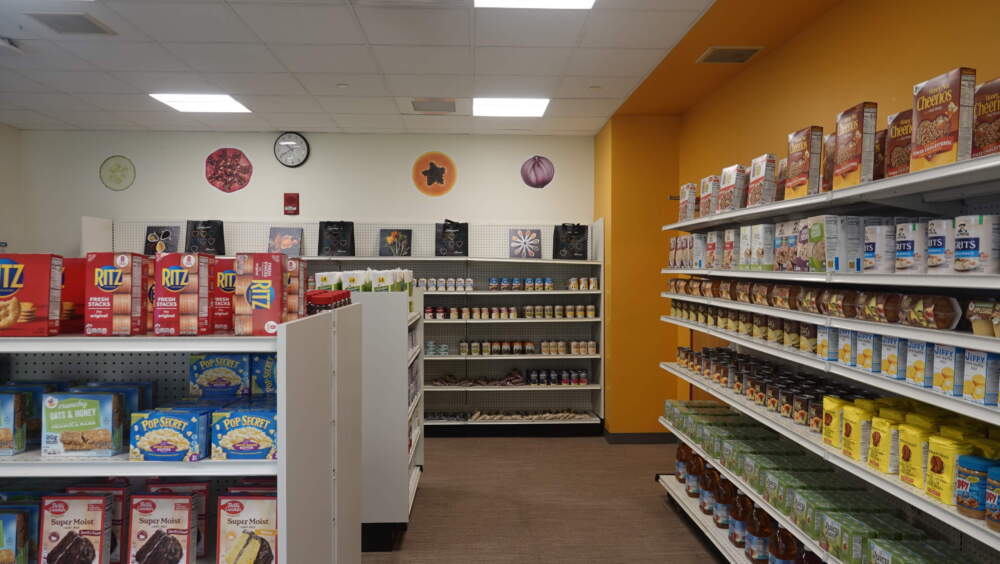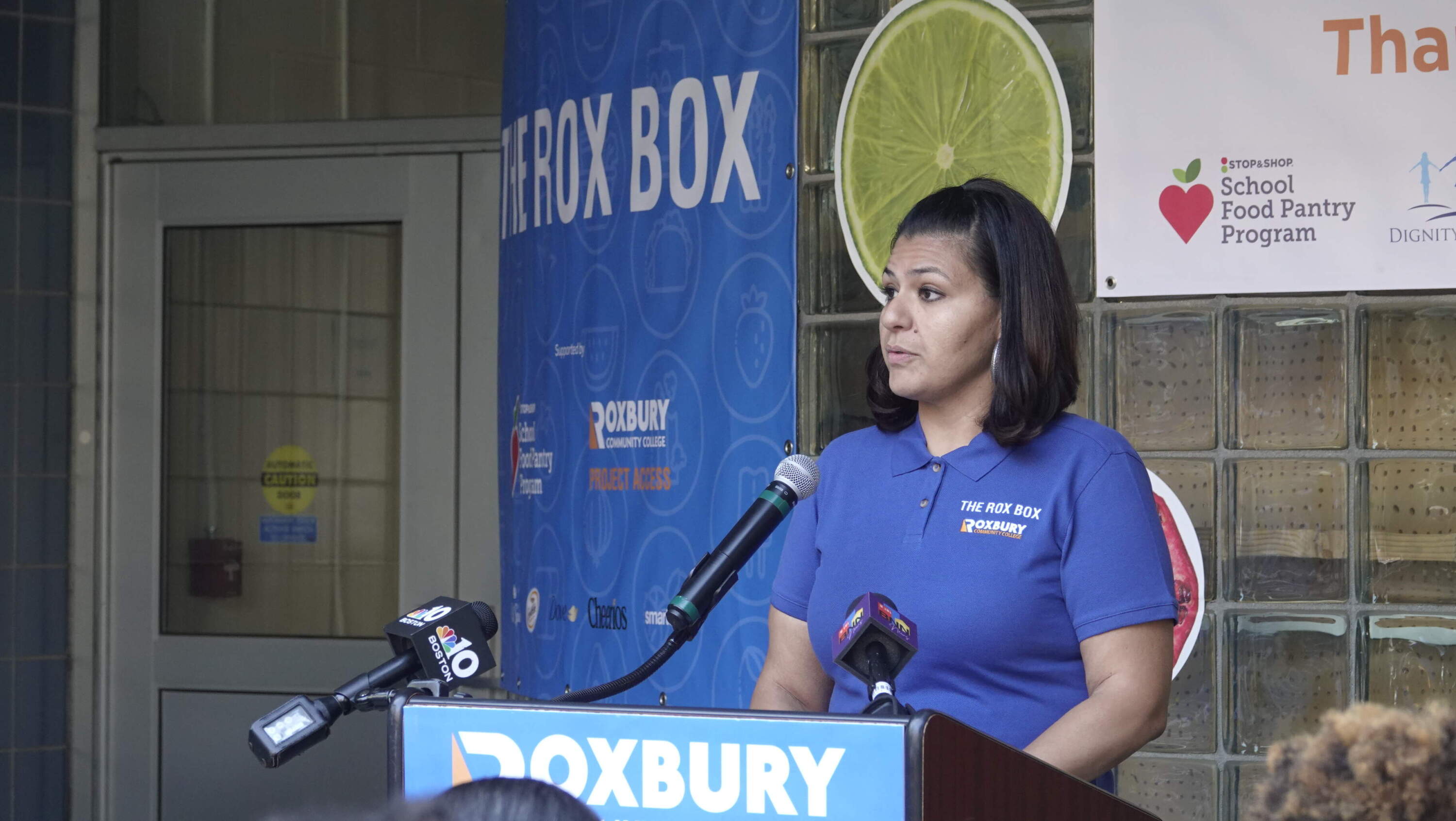Advertisement
How one college campus is helping students access meals over the holidays

When dorms and dining halls shut down for winter break, college students who rely on campus food services lose a critical resource. But staff at Roxbury Community College took steps this year to ensure those facing food insecurity can access meals through the holidays.
The college’s on-campus food pantry, known as the “Rox Box,” closes mid-December until classes resume on Jan. 22. The store ordinarily offers shelf-stable foods, like cereal, fruit snacks, microwavable soups and canned vegetables.
Before the break, Rox Box staff handed out Stop & Shop gift cards and free to-go meals. They also prepared a list of local spots where students can grab meals over the month-long recess.
“Our college is planning ahead and making sure that before the holidays, we are well-stocked with food, and that we have what we need for not only ourselves, but also for our families,” said Kiara Rosario, a Rox Box student employee.
The Rox Box opened this fall to serve students, staff and faculty experiencing food insecurity. Nearly 200 students have since frequented the shop, according to Lisa Carter, associate dean of students.
Foot traffic increased ahead of Thanksgiving, when staffers distributed roughly 100 Stop & Shop gift cards. Carter said she anticipates the need will be similar over winter break, when students stretch already-thin budgets to cover added expenses like gifts for family and friends.
“Just because it's the holidays doesn't mean all of a sudden students have a pot of money sitting somewhere that's going to be available to them to shop for extras,” Carter said. “We want to make sure that we try to support the students as best we can.”
Established through a $180,000 grant from the American Rescue Plan Act and other smaller donations from foundations, the food pantry offers university members that register for its services "points" to make purchases; those points renew monthly. (Students or staffers must fill out a form to register for Rox Box, but that process does not require additional financial information.)
For years, Carter said she kept granola bars and crackers in her desk to hand out to students who were hungry.
“I think we always knew that we needed something [like this] on campus,” she said.
Her intuition was confirmed by a survey the college conducted several years ago: roughly 15% of the school's students struggled with food insecurity. The problem has been linked with a lower likelihood of graduation and on-time college completion.
“It's not always the rigors of an academic program that can cause students to drop out,” Carter said, adding it’s often food and housing insecurity that can derail someone’s progress toward a degree.
One in three public university students across Massachusetts are food insecure, according to a 2019 study conducted by The Hope Center for College, Community, and Justice at Temple University in Pennsylvania.
Massachusetts made free school meals permanent for K-12 students in the 2024 fiscal year budget, which also included $1 million to target hunger on college campuses.
Food insecurity doesn’t end when college begins, said Kate Adams, public policy manager of the Greater Boston Food Bank. It can even loom larger as many students find themselves living independently for the first time.
“They graduate [high school] and go on to a technical school or to state university or community college and that safety net is not there anymore,” Adams said.
And with one in five students entering higher education as parents, according to a report by the Institute for Women’s Policy Research, the reach of campus hunger often extends beyond students to their families and children.
Like Roxbury Community College, many other Massachusetts colleges and universities are adopting new strategies to assist students facing food insecurity. Beyond food pantries, some offer mobile markets, community gardens or on-campus SNAP benefits.

Rosario, the Rox Box employee, said she's experienced food insecurity firsthand. In her early days at Roxbury Community College, the single mother had her SNAP card stolen. As she waited for a new card to come by mail, she worried about feeding her daughter and considered quitting school.
She said fortunately the school connected her to resources to tide her over.
The Rox Box wasn’t yet open. Rosario said she wishes it had been, as she could have grabbed food for her and her daughter on her way to and from classes.
Noting that "most people don't speak up" in situations like hers, she said she hoped all her peers were aware Rox Box can get help even if they don't feel comfortable asking for it.
She added that over the holidays and into next semester, she doesn't want anyone to experience the stress of not knowing where to find their next meal.
And with the Rox Box, she said, they won't.
